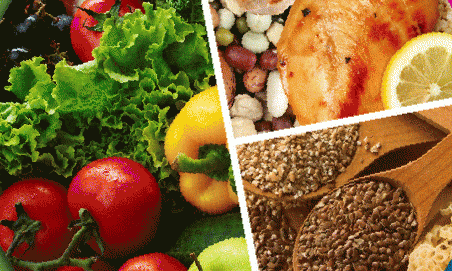News
How To Fill Your Plate

When it comes to filling your plate, think quality over quantity. Building a meal centered around nutrient-dense, wholesome fruits and vegetables is an important part of this philosophy, and one that makes it hard to overeat or eat poorly. Most physicians agree that when planning your meals, it’s important to count the fruits and veggies on your plates as opposed to calories, as the latter can be misleading.
“I’m not a fan of calorie counting and restriction; if people restrict calories too much and become starved for calories, there is usually a rebound effect,” says Dr. Lipton, an internist at Vail Health. “Personally, I focus on eating nutrient-dense foods which are naturally low in calories.”
So how does this actually look on your plate?
- Half your plate should be filled with fruits and vegetables, minimally processed, and cooked in healthy oils like canola or olive oil.
- A quarter of your plate should be filled with healthy grains — think whole wheat bread, whole grain pasta or brown rice. Stay away from refined grains, like white bread and white pasta.
- The last quarter of your plate should come from protein. Avoid cold cuts and bacon, as they’re usually processed and filled with additives. Instead, go for nuts, beans, poultry and fish, and try for high-quality sources (no hormones or antibiotics).
- 3 ounces of meat is the size of a deck of cards
- 1 cup of pasta, rice or vegetables is the size of a baseball
- 1 teaspoon of margarine is the size of one die
- 1½ ounces of cheese is the size of four stacked dice
- ½ cup of fresh fruit is the size of a tennis ball
- Eat from a plate, not the bag, box or package.
- Use a smaller plate, 9 inches, to avoid serving too much.
- Prep and plan — cut, chop and store veggies and fruit in the fridge, so it’s easy to snack on healthy items, as well as easier to throw a meal together.
- Stock up on staples — brown rice, no-sodium canned beans, frozen fruits and vegetables, oatmeal, pasta, bean soups, etc.
Dr. Dennis Lipton
For more information on nutrition and dietitian services, visit vailhealth.org/nutrition. To schedule an appointment call (970) 479-5058.
About Dr. Dennis Lipton - Internal Medicine | (970) 926-6340
Dennis Lipton MD is a board-certified internist trained in the essentials of primary care and disease prevention and can help ensure patients receive the proper medical screening tests and immunizations.
More News
-
New!
More

The Midnight Bathroom Run: Why It Happens and How to Stop It
If you’re waking up at night to pee, you’re not alone, and you’re not doomed to a lifetime of restless sleep. Nocturia, or nighttime urination, is one of the most common and under-discussed sleep disruptors, affecting both men and women, especially as we age. But according to Dr. Joseph Dall’Era, a urologist at Vail Health, it’s not something you have to simply “live with.” “Usually, we imply nocturia if the urge to urinate is what actually wakes people up,” Dall’Era explains. “For most people, getting up once a night isn’t a big deal. But if it starts to interfere with sleep quality or you notice a change in how often it’s happening, that’s worth a closer look.”
-
New!
More

Healing from the Inside Out: How Nutrition Supports Recovery
Whether you are recovering from a minor scrape, a sports injury or major surgery, what you eat can significantly impact how well, and how quickly, you heal. While your body is working hard to repair tissue, fight infection and restore strength, it needs the right fuel to do its job. Below are some simple ways to incorporate key nutrients into your diet to help your body repair itself.
-
New!
More

Supplements, Simplified
Nutrition noise is loud. From gym bros preaching powders to influencers pushing miracle capsules, it’s hard to know what your body really needs and what’s just hype. The truth? Supplements aren’t a one-size-fits-all, and they’re not meant to replace real food.





